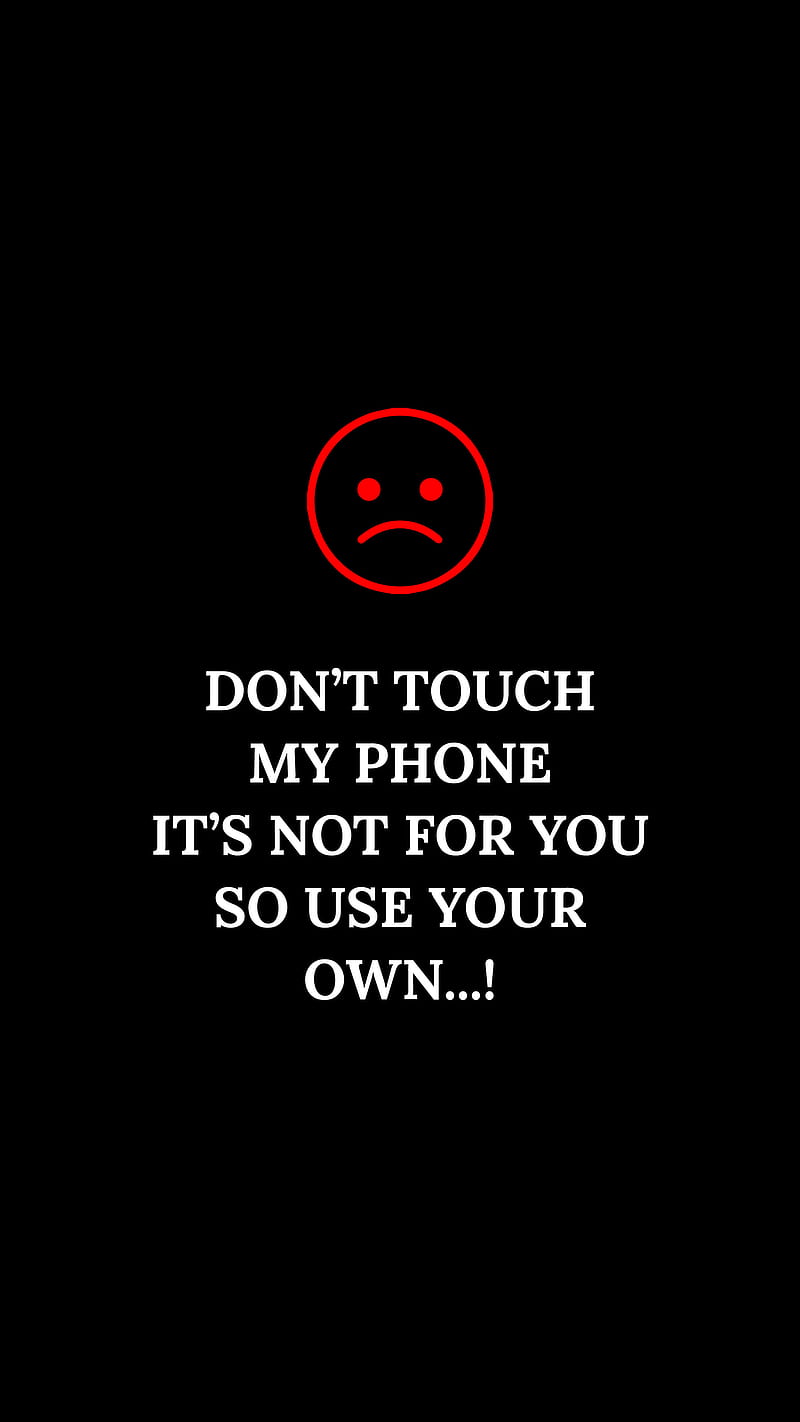In an age where smartphones have become extensions of our lives, the phrase “Don’t Touch My Phone” resonates with many individuals. It underscores significant issues surrounding privacy, trust, and security associated with our mobile devices. This article will explore the factors that contribute to this sentiment, dissect the implications of smartphone handling, and provide insights into how we can maintain our privacy and security while using our devices.
Understanding Smartphone Privacy
Smartphones carry a wealth of personal information, from messages and photos to banking details and health information. Understanding smartphone privacy is crucial for safeguarding this data.
What Is Smartphone Privacy?
Smartphone privacy refers to the protection of information stored on mobile devices from unauthorized access. This includes communication data, app usage, location tracking, and even biometric information.
The Importance of Smartphone Privacy
With increasing dependence on smartphones for daily activities, privacy becomes paramount. Breaches can lead to identity theft, financial loss, and personal distress.

Security Concerns: Why People Say “Don’t Touch My Phone”
Security concerns often drive the sentiment behind “Don’t Touch My Phone.” Users fear their data may fall into the wrong hands.

Common Security Threats
| Threat Type | Description |
|---|---|
| Malware | Software designed to harm or exploit any programmable device. |
| Phishing Attacks | Deceptive attempts to obtain sensitive information by masquerading as a trustworthy entity. |
| Public Wi-Fi Risks | Using unsecured networks can expose users to data interception. |

Impact of Security Breaches
Security breaches can lead to various negative outcomes, including loss of personal data, financial repercussions, and emotional distress.
Trust Issues in the Digital Age

Trust is an essential component of smartphone use. Many individuals feel their smartphones are continuously monitoring them.
How Trust Is Eroded
Incidents such as data leaks or corporate misuse of personal data can diminish trust between users and technology companies.
The Role of Transparency
Tech companies can rebuild trust by being transparent about how user data is collected, stored, and shared. Users should be aware of their rights regarding data protection.
Smartphone Etiquette: Personal Space and Boundaries
Respecting personal boundaries is vital in the context of smartphone use.
Why Personal Space Matters
Everyone has different comfort levels with sharing personal devices. Establishing boundaries is essential for interpersonal relationships.
How to Communicate Boundaries Effectively
- Be direct and clear about your privacy needs.
- Use humor to ease the conversation without diminishing seriousness.
- Educate others on the potential risks of accessing your device.
Pros and Cons of Smartphone Ownership
Pros
- Immediate access to information and communication.
- Convenience and connectivity.
- Numerous applications for various needs.
Cons
- Privacy concerns and potential for data breaches.
- Distracting and intrusive in personal interactions.
- Dependence on technology leading to social isolation.
Maintaining Your Smartphone’s Security
To protect your data and maintain your privacy, consider the following strategies:
1. Use Strong Passwords
Create complex passwords and update them regularly.
2. Enable Two-Factor Authentication
This adds an extra layer of security that can prevent unauthorized access.
3. Regularly Update Software
Keep your operating system and apps up to date to mitigate security vulnerabilities.
4. Be Cautious with Public Wi-Fi
Avoid accessing sensitive information on unsecured networks.
5. Install Security Software
Use reliable antivirus and anti-malware solutions to protect your device.
FAQs About Smartphone Privacy and Security
What should I do if I accidentally let someone use my phone?
Request them to refrain from accessing sensitive apps and consider changing passwords afterward.
How can I ensure my smartphone is secure from unauthorized access?
Implement strong passwords, enable biometric locks, and avoid sharing your device.
Are there specific apps to help with privacy and security?
Yes, consider using privacy-focused apps like Signal for messaging or DuckDuckGo for browsing.
What should I do if I believe my phone has been compromised?
Disconnect from the internet, run a security scan, and consult with a professional if necessary.
Is it safe to allow family members to use my phone?
While family members are often trusted, it’s wise to communicate your boundaries and monitor what they access.
Conclusion
The phrase “Don’t Touch My Phone” encapsulates deep-seated concerns surrounding privacy, trust, and security in our digital lives. By understanding the importance of smartphone privacy and implementing security measures, we can empower ourselves to use technology safely and maintain personal boundaries. As we navigate the digital landscape, raising awareness about these issues is vital for fostering a culture of respect and protection regarding personal information.